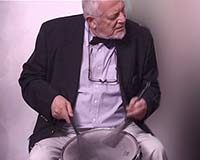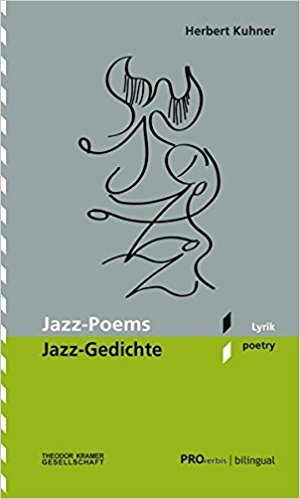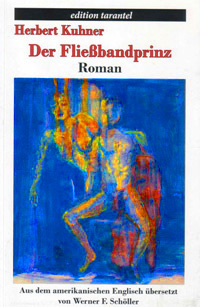„Hermagoras“ Shenenigans
Herbert Kuhner
“Hermagoras“ Shenenigans
Translating Poetry by the Carinthian Slovenes
I met Lev Detela and Milena Merlak at the Fresach Symposium in Carinthia in 1972. I translated their poetry into English and also translated other Slovenian and Carinthian Slovene poets into that language. I sent the poems out, which was a complex matter in those days. Many were published in literary reviews such as
The Malahat Review, The Webster Review
and Poetry Australia.
I am grateful to the late Walther Nowotny for having invited me annually to this symposium.
I happen to be the first translator to have rendered the Carinthian Slovenes into English,
and along with Feliks Bister was the first to anthologize them.
Our anthology was accepted for publication by Hermagoras Verlag, Klagenfurt, and it was
published in 1983.
The edition was almost immediately sold out.
Hermagoras Verlag co-editor Vinko Ošlak claimed that Carinthian Slovenian Poetry, which had received critical acclaim internationally, was badly translated. This is an innovation in the publishing trade. Every editor who had previously received an unsatisfactory translation had either rejected it or sent it back to the translator for revisions.
Imagine, editors Franz Kattnig and Vinko Ošlak solicited an attack on the translations by Ester Sfreco in Maladika journal.
Ms. Sferco selected the following rendering as an example of a translation gone awry.
Valentin Polanšek
Kmečka slika
Takšen želim biti,
kot je vonj ajdovih žgancev
in sopara zavrelega mleka –
tako pristno jutranji za ves dan!
Takšen želim biti,
kot je domači črni kruh
in preprosti zlati jabolčnik –
tako trpežen in opojen po trdem delu.
Takšen želim biti,
kot je zateglo žebranje
in skupnost kmečkega spanja –
tako spojen s krvjo in zemljo!
Valentin Polanšek
Idyll
I’d like to be a morning
with the odor of buckwheat
and the steam of cooking milk –
a morning like that.
I’d like to be a morning
with homemade black bread
and new apple wine –
intoxicating after hard work.
I’d like to be a morning
with the monotony of prayers
and peaceful matrimonial sleep –
at one with everything around me.
****
I am not religious, but by God this poem happens to be a magnificent depiction of faith and the bucolic life.
Once was not enough! Hatchet reviews became a
feature of Mladje, the Hermagoras house journal.
Idyll, as well as others from the first collection, was again published as is in Slovenian Poetry Today.
On May 8, 1983, editor-in-chief Franz Kattnig of Hermagoras commissioned to translate The Star of Bethlehem Goes Off Course by Marica Kulnik. I duly delivered the translation and it was found to be satisfactory.
A year later, I heard through the grapevine that the book had been published by Jungbrunnen Verlag containing a translation by Murray Hall.
Herr Kattnig claimed that a new translation had to made since Marica Kulnik, the author, had revised the original, making the first translation invalid.
Murray Hall informed me that Jungbrunnen never received my translation from Herr Kattnig. They had to search franticly for a translator in the last minute before publication.
Award?
In September of 1987, after the publication and enthusiastic critical reception of Carinthian Slovenian Poetry, I received a cylindrical box by registered mail from Hermagoras Verlag containing an elaborate diploma photocopied here.
Emblazoned on the diploma are the forged signatures of six deceased prominent personages who were deceased at the time the document was produced. In other words, the signatures of the signatories were “concocted.”
(Needless to say, there was no award ceremony, no endowment and no official announcement.)
There are “five” varied misspellings of the “laureate”s name on the diploma and the address label.
A very amusing joke! Hawr! Hawr! Hawr!
There were “five” varied misspellings of the “laureate’s” name on the diploma and the address label.
And speaking of misspellings, this is what appeared on the proofs of Carinthian Slovenian Poetry: “Slovenial & Jogoslavia.”
(These were duly corrected by the editors of the collection.)
I must concede that my creativity cannot compete with the creativity displayed at this sacerdotal location.
****
Slovenian Poetry Today/ Sobodna slovenska poezija /Slowenische Lyrik heute
2023
Edited and translated
by Herbert Kuhner & Peter Kersche
Introduction: Lev Detela
Edition Pen /Löcker Verlag Vienna,
Austrian PEN Books/Löcker Verlag, Vienna
Was and Is
This is how it was
and this is how it is.
Due to historical circumstances, English became my primary form of communication, as well as my literary form of expression.
That is something I do not regret. (However, I also do not regret coming back to my original language.)
The CIA Comes into Play
I had been frequent guest at the Struga Poetry Evenings Festival in Macedonia, where I had
exchanged translations of poetry with poets from other nations. After an accusation[1] stemming from Austria was circulated that I was in the pay of the CIA, my invitations ceased.
After Returning to the Scene:
”Harry, you are wonderfully dedicated to high purpose! I don’t know who but you could write so well on these topics. You need to find a place in yourself to feel well. They say you take yourself wherever you go, and it may be that your habit of seeing the world so harshly will fly with you to even the finest abode. But you are steeping in this pain right now. I do so want to see you applying your genius. I do so want to see you applying your genius to more life affirming subjects.”
– David B. Axelrod, poet
“Harry, I am deeply moved by your pieces on remigration. This is powerful stuff and it rings with truth…It’s impossible to use irony on fascists. They don’t get it.”
– Winston Kulok, Village Empire, New York
“Memoirs of a 39er is a chronicle of Herbert Kuhner’ sheroic opposition to the hardships of trying to be a literary man in a country whose cultural climate is antipathetic to him, and indeed seems to present him at every turn with new sources of agony.”
– Emile Capouya, writer, critic and H.K ‘s literary mentor
Letter from T.S to L.D.










 Users Today : 30
Users Today : 30 Users Yesterday : 138
Users Yesterday : 138 This Month : 3511
This Month : 3511 This Year : 9570
This Year : 9570 Total Users : 191375
Total Users : 191375 Views Today : 80
Views Today : 80 Total views : 1894371
Total views : 1894371 Who's Online : 4
Who's Online : 4




